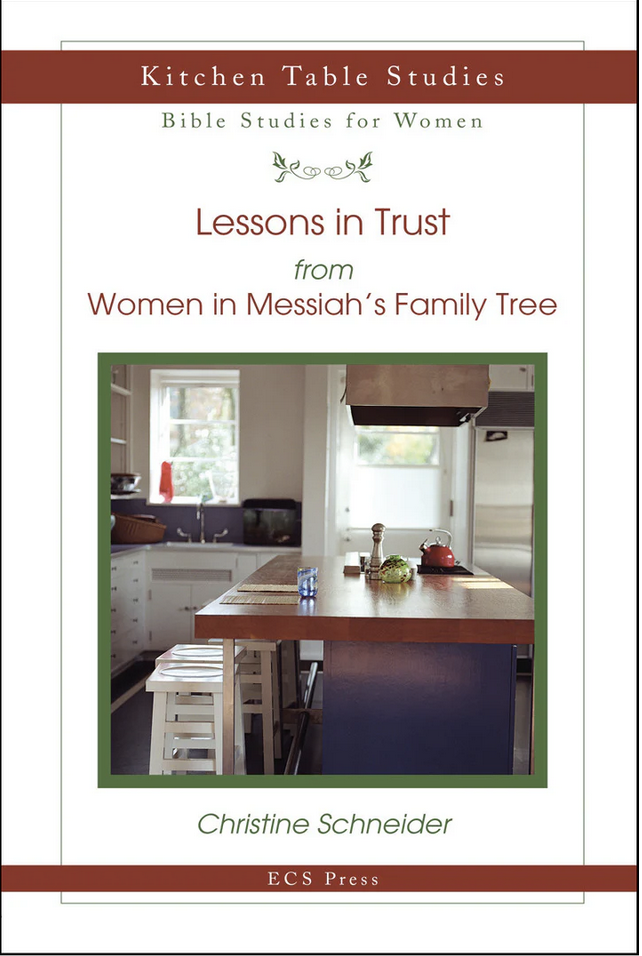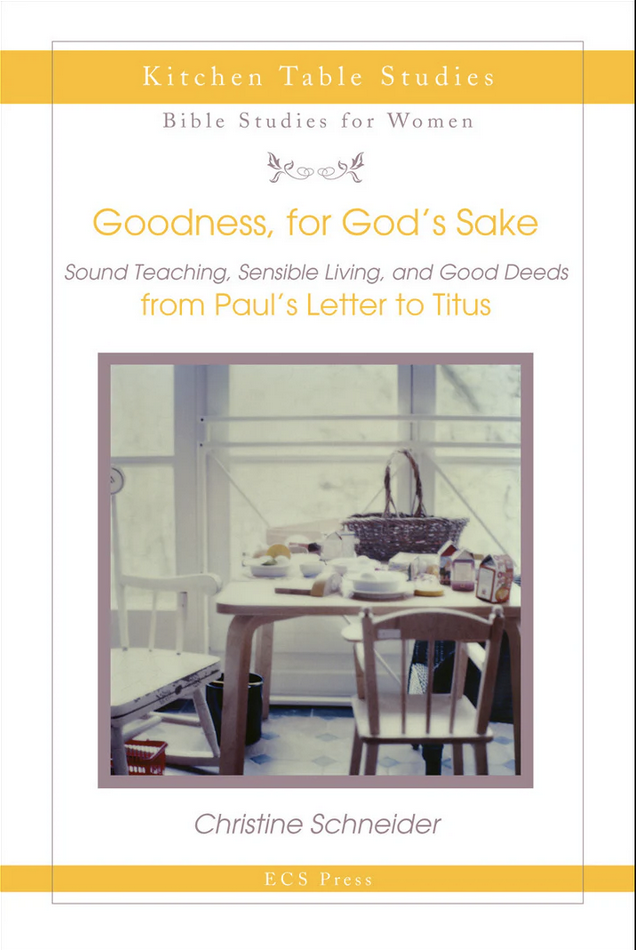
In Dorothy's Gift by Christine Schneider, life is as smooth as satin for Dorothy, a talented wedding seamstress whose world revolves around her loving family and serene routine. But everything changes when Bailey, a fiery young woman with a hidden past, enters Dorothy's life. Driven by compassion, Dorothy invites Bailey into her home, sparking a year of tumult that challenges the very fabric of her faith and resilience.
As Dorothy stitches together exquisite bridal gowns, she must also weave a path through new . Bailey becomes both a catalyst for change and a mirror reflecting Dorothy's own trial of self-discovery.
A story of unexpected friendship, redemption, and the courage to embrace life-altering decisions, Dorothy's Gift unfolds with heartwarming and thrilling turns. Can Dorothy and Bailey uncover the true meaning of family, forgiveness, and love?
Christine Schneider has been crafting stories since she learned to read. Dorothy's Gift marks her debut into contemporary fiction. Residing in Montana and married to Floyd for over fifty years, she is a proud mother, grandmother, and seasoned adventurer of life across five states and two foreign countries. Christine's literary repertoire also includes historical novels such as In the Shadow of the Cathedral and Hammering at the Doors of Heaven, narratives rich with European history.
Dorothy’s Discussion Questions
REVIEWS
REVIEW: I finished the book because I couldn’t stop reading. I love the story, I love the characters, I love the message, I love the writing style, I love it all. I want to go back so I can better appreciate the character development and story arc. I cried multiple times throughout the book.
—Betty, missionary and missionary wife in Kenya
I can't say enough about this book. It almost didn't make it all the way. More obstacles than we've ever experienced before in writing and publishing a book.
Recent Articles
-
Sam's Parable Before the Ordination Council
Jan 01, 26 05:22 PM
Sam's Parable Before the Ordination Council
Newsletter
In my newsletter, I keep this special group of people informed about
1. Our family
2. My writing progress
3. My characters, where I got my ideas, why I care, and more!
Understand the Bible Better
Unleash Your Own Bible Study Journey!
Have
you ever wished you could delve deeper into God's Word to more fully
understand its profound message? Or perhaps you have wondered how
preachers and Bible study teachers can dig so much out of scripture that
you didn’t see. "Understand the Bible Better" by Christine
Schneider is your invitation to an exciting, hands-on journey of
discovery and personal growth.
This empowering guide shatters the
intimidation often associated with biblical study. It offers a simple
and accessible method that anyone can follow. You’ll gain a newfound
confidence and direction in your exploration of Scripture. The book
equips you with invaluable worksheets and methods, feeding and nurturing your
hunger for God's Word within your own life. You will soon learn to
share this with others and help them to grow in their faith as well.
This
booklet is praised as an excellent starting point for new believers and
for those exploring faith for the first time, while encouraging older
believers to dig deeper into God’s Word. Its clear and concise
explanations make even complex ideas understandable, helping you grasp
the profound continuity woven throughout the entirety of Scripture.
"Understand the Bible Better" is more than just a book; it's a
doorway to a richer, more meaningful understanding of God's Word.
Get Your Copy Now
Historical Fiction
Turn of the first century.
The lives (and deaths) of those common people who built a cathedral.
In the shadows of medieval Europe, where colossal cathedrals touch the sky and whispers of rebellion echo beneath the stone, a gripping tale unfolds. In the Shadow of the Cathedral transports readers to a time when faith is both a weapon and refuge. After the small church of Felsenburg succumbs to flames, an ambitious bishop vows to build an architectural marvel—a towering emblem not only of God's glory but of his own unchecked power.
Enter Andrew, a young, earnest assistant to the bishop, whose journey of awakening begins amidst the rising walls of stone. Within the hidden fold of those deemed heretical, he discovers a vibrant community challenging the very foundation of his beliefs. Among them is the compassionate Cecilia, whose presence ignites a spark of love and a deepening understanding of true devotion.
As Andrew teeters between worlds, his faith is tested by moral dilemmas and the perils of forbidden love. Can he embrace the radical spirit of truth and courage under the shadow of a monument to human ambition?
Christine C. Schneider, drawing from her years in Austria and passion for medieval history, crafts a narrative woven with intensity and insight, making In the Shadow of the Cathedral an unmissable journey through the annals of time, love, and unyielding perseverance. Prepare to be swept away into a tale where every stone whispers secrets of the past and every decision could mean life or death.
In the medieval town of Felsenburg, where the skies are pierced by the construction of a grand cathedral, a tale of redemption, love, and defiance awaits. Dive into the pages of Hammering at the Doors of Heaven , where Count Raimund, burdened with a lifetime of guilt, seeks absolution by commissioning the finest bronze bells—a costly pursuit for peace and eternal treasures. But can earthly riches truly cleanse a tormented soul?
Amidst the echoing clang of metal and faith, two resilient souls, Emmerich, the skilled bronze worker, and Monica, a widow with young children, are drawn into a clandestine circle of believers. Labeled heretics by the city's clerics, their quest for belonging and love unfolds beneath the heavy watch of the count and the oppressive shadows of the cathedral's walls.
Christine C. Schneider, with her unique blend of historical insight and storytelling prowess, invites readers to traverse a world where medieval intrigue, devotion, and passion collide. Will the characters transcend their pasts and the daunting decrees of power to unearth true joy? Hammering at the Doors of Heaven promises an odyssey through time, where every choice resonates like the toll of a mighty bell across eras.
With endorsements from literary voices such as Luis and Pat Palau and Paul L Meyer, this narrative assures its readers that amid the darkness, the light of the gospel and the human spirit shine on. Prepare to be captivated, as each page turns, by the transformative power of grace and resilience.
Our 15 Years in Austria
Embark on an extraordinary journey filled with faith and spiritual discovery in We Never Saw It Coming by Floyd and Christine Schneider. This is no ordinary missions textbook; it's a captivating narrative of a fifteen-year adventure living as missionaries in Europe. Through their heartfelt storytelling, you'll experience the challenges and joys of mastering a new language, navigating foreign shopping aisles, and raising their sons in unfamiliar schools.
Based on an archive of letters lovingly preserved by friends and family, this book invites you to walk alongside Floyd and Christine as they battle loneliness, confront bureaucracy, and stretch every dollar in a foreign land. Feel the emotional pull of conflicts with co-workers, mirrored by the uplifting moments when the Holy Spirit illuminates paths to share Christ’s love with Austrians. Revel in the triumph of witnessing new churches blossoming—churches that continue to thrive decades later.
About the Authors: Married since 1973, Floyd and Christine Schneider cherish their family, which includes two sons, talented daughters-in-law, and eight lively grandchildren. Floyd has penned acclaimed works like Evangelism for the Fainthearted and Death Came Calling But I Wasn’t Home. Christine is the creative mind behind In the Shadow of the Cathedral and various Bible study guides. Together, their passions for reading, writing, and savoring serene beach walks add layers of depth to their storytelling.
Dive into a world where faith intersects with everyday challenges, and discover how cultural love can transcend barriers—one letter, one family, one story at a time.
Embark on an extraordinary journey filled with faith and spiritual discovery in Letters from the Field by Floyd and Christine Schneider. This is no ordinary missions textbook; it's a captivating narrative of a fifteen-year adventure living undercover as missionaries in Europe. Through their heartfelt storytelling, you'll experience the challenges and joys of mastering a new language, navigating foreign shopping aisles, and raising their sons in unfamiliar schools.
Based on an archive of letters lovingly preserved by friends and family, this book invites you to walk alongside Floyd and Christine as they battle loneliness, confront bureaucracy, and stretch every dollar in a foreign land. Feel the emotional pull of conflicts with co-workers, mirrored by the uplifting moments when the Holy Spirit illuminates paths to share Christ’s love with Austrians. Revel in the triumph of witnessing new churches blossom—churches that continue to thrive decades later.
In addition to their personal narrative, the second part of the book delves into profound insights on mission work, offering articles by Floyd that blend biblical, anthropological, and cultural theories. These succinct pieces are designed to provoke thought, encourage educator-student dialogue, and guide aspiring missionaries in their pursuit of serving Jesus in diverse cultures. Enhance your understanding with practical role-plays, an extensive list of recommended books, and links to valuable online resources.
About the Authors: Married since 1973, Floyd and Christine Schneider cherish their family, which includes two sons, talented daughters-in-law, and eight lively grandchildren. Floyd has penned acclaimed works like Evangelism for the Fainthearted and Death Came Calling But I Wasn’t Home. Christine is the creative mind behind In the Shadow of the Cathedral and various Bible study guides. Together, their passions for reading, writing, and savoring serene beach walks add layers of depth to their storytelling.
Dive into a world where faith intersects with everyday challenges, and discover how cultural love can transcend barriers—one letter, one family, one story at a time.
Get Your Copy Now!
Get Your Copy Now!

Get Your Copy Now!
Floyd's Books

REVIEWS
It is hard to understate the creative and storytelling framework of the mind of Floyd Schneider. As someone who has personally been taught by him as a professor and been discipled by him, I can say without a doubt that the deep and creative stories he has told have had an amazing and profound impact not only on me but on all who hear them. Floyd has been writing for a long time and telling stories for even longer, to see a book like this come out I can only say kudos and God bless that we have such a skilled teacher, expositor, and writer like him. --Jacob
This is a fun story, well told, with a view to understanding that people have backgrounds that you might not be able to tell at first glance. The characters are well defined. I especially liked the inner-voice self arguments that the two main characters engage in. Well worth your time to read. --M.C.
A good read. Once you get rolling, you realize you’re somewhere in the middle, and forgot that you had a meeting. Enough about me though, Floyd seems to have this ability to write characters that resonate with the little things you forget about they’re so normal. So you find yourself wrapped in a story of familiarity, even though you know you could never actually do what these characters do. It’s a damn good story. Give it a go. --Nathan
Dr. Schneider is clever and always entertaining in his stories. --Mike A.
Never read a better book. --Jas
If you enjoy reading Maya Banks' KGI series, you will enjoy All You Cannot See, the first in a new series by Floyd Schneider. The book is about a group of people who save young girls who are kidnapped to be sold overseas. Ryan is part of this organization and can't tell Danique, a young woman he meets on campus. As the danger for each of them escalates, the love they share also grows. This book presents the characters well and the story keeps readers engaged throughout the book. It is a great start to a new series. --Louise A. Harris
~~~~~~~~
No two people could be more different: Ryan runs toward trouble
and Danique has run away. At a small, private university in the
foothills of Montana, fate brings them together in a tangle of bookbags
and classroom chairs.
But Ryan is no wide-eyed Freshman; he works
for a consulting company as a cover for his real job of rescuing
international kidnap victims. Reluctantly, he has agreed to join the
collegiate crowd to add an MA in International Finance to his resumé. He
will get it done – and quickly – but kidnappings don’t wait for summer
break.
Danique, definitely a wide-eyed Freshman, has escaped from
an abusive home, leaving her two sisters behind. Putting aside her
desire for travel, adventure, and romance, she determines to find a
career that will provide for the girls. She disappoints herself,
however, by falling for the first man to pay any attention to her. Will
she end up just like her mother?
When Danique literally crashes
into Ryan and reopens a recent wound, he finds he must trust her, but
how trustworthy can she be? His team is afraid that his emotions for
Danique will override his good sense. Yet he harbors a greater secret
that tears at his heart and could jeopardize the lives of everyone in
his team. Loving Danique has to come last. Or does it?
Get Your Copy Now!
EVANGELISM
REVIEWS
Floyd's fearless zeal for evangelism has produced fruit in Europe
and has challenged many of the fainthearted in North America.
"I
told him (the author) numerous times that his method of evangelism
wouldn't work. He told me that I was right--because I wasn't willing to
try it. I tried it. Within the first week of using these principles,
five people wanted to read the Bible with me."--Government official in
Berlin, Germany
"Floyd's Schneider's book is the ultimate
encouragement for people like me who . . . are secretly ashamed because
they're doing so poorly when it comes to evangelism. I've recognized
both the validity and the simplicity of the principles laid out by the
author and have seen them work." --Henk P. Medema, publisher, the
Netherlands. (This book was published in the Dutch language a year
later.)
"Anyone who didn't quit in the missionary graveyard that
is Austria and who engaged in a successful ministry of evangelism and church
planting there, is well-qualified to write a book on evangelism. We can
all learn a great deal from Floyd Schneider's experience in the hard
places." --Ian Burness, Echoes of Service, a mission agency in England
Get Your Copy Now
COMBAT
"Sarge, are you dead?"His question brought me back to consciousness. "Uh, no, at least I don't think so." I felt something sticky under my shirt. I reached inside my shirt, and my hand came out soaked in blood. The only thought that went through my mind was, "This is my blood on the outside of my body. This is not good."I joined the Army because I wanted freedom. My high school principal told me that I needed to grow up. We arrived in Vietnam on Dec. 15, and on Christmas day 1967, I grew up. A "training mission" turned into a full-scale firefight. Surrounded by killing and death, I had no time to reflect on my expectations of combat. We searched the bodies of those we had killed for any traces of information about their units. We treated our wounded. We put our dead on helicopters, and we returned to base as "experienced" combat soldiers. Why did I survive, and others did not? Although I puzzled over that question, it became clear that my job in combat, as a squad leader, was just to stay alive, keep my men alive, and kill the enemy. If I died in the process, so be it. I just didn't want my mother to suffer the loss of her only child. Schneider received four Purple Hearts, three in one day. He also received an Army Commendation Medal with V for valor. While his squad was under fire and he was wounded, he rescued three of his wounded men and continued to direct his squad.
Get Your Copy Now
RUSSIA
Russia, 1997-1998
Learning the language in order to bring the Gospel to people has a hidden drawback. The more the nationals helped us with the language, the closer our relationship grew with them. And then it really hurt to say goodbye.
We spent only four weeks with some Russians learning their language, but at the end of our time, a number of them begged us to stay much longer. We couldn’t. The language school moved us every month to a new city in Russia. After our first city of Nizhni Novgorod, we realized that we would never see those people again. With our extremely primitive language ability and only four weeks, we were only able to give our teacher and hosts a Russian New Testament. We placed on trust in God’s Word, that if they were true seekers, they would eventually find our Savior (Matthew 7:7-8). As our language ability improved, the faster and closer our relationships grew with them, and the harder it was to leave.
But what about all those Russians in those other cities who had never heard the Gospel?
By the time we returned to St. Petersburg, we had decided to stay there long-term. God had other plans for us.
Get Your Copy Now
Freedom to Choose?
Reclaiming Human Free Will from the Biblical Text Itself.
Are you ready to read the Bible without someone else’s lens? Freedom to Choose? invites you on a journey back to the source—the actual biblical text—to explore the vital question of human free will without the filters of theological systems. This book is not written to promote a denomination or a doctrinal agenda. Instead, it calls readers to return to the text of Scripture as the final authority.
Unlike many books that begin with theology and work backward into the Bible, Freedom to Choose? does
the opposite. It starts and stays with the Word. You’ll discover how
Scripture consistently affirms the ability of human beings to respond
freely to God—without the need to conform to theological frameworks
imposed by others.
By reading this book, you will gain the following benefits:
1. A Clear Priority – Learn why the Bible text takes precedence over theology and how all theological conclusions must stand or fall based on the text—not tradition or system.
2. Freedom to Read for Yourself
– Be empowered to read and interpret Scripture without theological
interference, giving you confidence to see what the Bible actually says.
3.
Context Restored – Uncover numerous verses lifted out of their context
by theologians to support theological systems rather than what the
passage truly teaches.
4. Historical Accuracy – Discover how key figures like Luther and Calvin have been misquoted or misunderstood, and how their original intent often differs from how these men are quoted in modern theological arguments.
5. Textual Defense Without
Theology – Learn how to defend each passage in its own context without
relying on cross-references or theological foundations. Each verse
stands on its own when carefully read in context.
Freedom to Choose? is for anyone who wants to break free from inherited interpretations and engage Scripture directly and honestly. Whether you’ve been studying the Bible for years or are just beginning, this book will challenge assumptions, restore clarity, and help you rediscover the beauty of God’s Word as it was meant to be read—straightforward, powerful, and free.
Get Your Copy Now
Most scholars believe that Mark wrote his Gospel to the Romans.
True: but in addition to presenting the Gospel to the Romans, Mark
actually contextualized his Gospel by challenging the leading propaganda
of his day, Virgil's Aeneid. The Roman poet, Virgil, wrote his
masterpiece epic poem, the Aeneid, to promote the myth that Caesar
Augustus was the son of god. The Aeneid went viral almost immediately
upon publication in 19 BC, becoming Rome's premier piece of propaganda
that promoted Augustus as the emperor who would bring peace to the
world. Within the first century, the Aeneid reached from Masada to
northern Britain and became a foundational piece of Roman education.
Mark's mother, Mary, and his uncle, Joseph/Barnabas, raised him in
wealth, and educated him in the four languages of Hebrew, Aramaic,
Greek, and Latin. They drew him to Jesus, and Barnabas took Mark on the
first missionary journey. Mark spent time with Peter in Rome, where Mark
wrote his Gospel in Greek. Mark most certainly had direct access to the
most influential piece of Latin literature, the Aeneid, and he wrote
his masterpiece Gospel comparing Augustus with Jesus, the true Son of
God.













